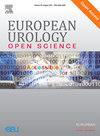两种心血管健康算法与肾结石之间的关系:一项全国性的横断面研究
IF 3.2
3区 医学
Q1 UROLOGY & NEPHROLOGY
引用次数: 0
摘要
背景与目的关于心血管健康(CVH)与肾结石之间关系的文献有限。本研究旨在比较生活简单7 (LS7)和生活必需8 (LE8)与肾结石患病率的关系。方法采用NHANES数据(2007-2018)进行横断面分析。参与者年龄≥20岁,有肾结石病史,并有LS7和LE8评分。LS7和LE8的评分都是这样的,分数越高表明CVH越好。加权比例和多变量logistic回归模型评估CVH指标与肾结石患病率之间的关系,调整混杂因素。确定受试者工作特征(ROC)曲线和ROC曲线下面积(AUC),以区分LS7和LE8在肾结石相关模型中的判别能力。主要发现和局限性:共纳入23 563名成年人;平均年龄48.1岁(男性48.1%)。肾结石患病率为10.1%。平均LS7分8.4分,LE8分68.6分。多变量分析和受限三次样条模型表明CVH测量与肾结石患病率之间存在显著的非线性负相关。LS7理想组的患病率低于不良组(优势比[OR] = 0.53;95%可信区间[CI] 0.41-0.69)。高CVH组的患病率低于低CVH组(OR = 0.46;95% ci 0.36-0.57)。评价LS7和肾结石、LE8和肾结石的auc分别为0.676和0.677。局限性如下:横断面设计限制了因果推断,自我报告数据的回忆偏差,以及潜在的残留混淆。结论及临床意义两种CVH算法均与肾结石患病率呈显著的非线性负相关。对于更广泛的实现,LS7可能更容易访问。需要进一步的高质量前瞻性研究来阐明这种关系。在这项研究中,我们利用一项大型全国性调查的数据,探讨了心脏健康与肾结石之间的联系。我们发现,通过两种不同的评分方法来衡量,心脏健康状况较好与患肾结石的几率较低有关。我们的研究结果表明,促进心脏健康有助于降低成年人患肾结石的风险。本文章由计算机程序翻译,如有差异,请以英文原文为准。
Association between Two Cardiovascular Health Algorithms and Kidney Stones: A Nationwide Cross-sectional Study
Background and objective
There is limited literature on the relationship between cardiovascular health (CVH) and kidney stones. This study aims to compare the association of Life’s Simple 7 (LS7) and Life’s Essential 8 (LE8) with kidney stone prevalence.
Methods
A cross-sectional analysis was conducted utilizing NHANES data (2007–2018). Participants aged ≥20 yr with a history of kidney stones and available LS7 and LE8 scores were included. Both LS7 and LE8 are scored such that higher scores indicate better CVH. Weighted proportions and multivariable logistic regression models assessed the relationship between CVH metrics and kidney stone prevalence, adjusting for confounders. The receiver operating characteristic (ROC) curve and the area under the ROC curve (AUC) were determined to distinguish between LS7 and LE8 in terms of their discriminative ability within the model associated with kidney stones.
Key findings and limitations
A total of 23 563 adults were included; the mean age was 48.1 yr (48.1% male). Kidney stone prevalence was 10.1%. The mean LS7 and LE8 scores were 8.4 and 68.6, respectively. A multivariate analysis and the restricted cubic spline model indicated a significant nonlinear negative correlation between these CVH measures and kidney stone prevalence. The LS7 ideal group showed a lower prevalence than the poor group (odds ratio [OR] = 0.53; 95% confidence interval [CI] 0.41–0.69). The high CVH group had a lower prevalence than the low CVH group (OR = 0.46; 95% CI 0.36–0.57). The AUCs for evaluating LS7 and kidney stones, as well as for LE8 and kidney stones were 0.676 and 0.677, respectively. Limitations were as follows: cross-sectional design limiting causal inference, recall bias from self-reported data, and potential residual confounding.
Conclusions and clinical implications
Both CVH algorithms show a significant nonlinear negative correlation with kidney stone prevalence. LS7 may be more accessible for broader implementation. Further high-quality prospective studies are needed to clarify this relationship.
Patient summary
In this study, we explored the connection between heart health and kidney stones using data from a large national survey. We found that better heart health, measured by two different scoring methods, is linked to a lower chance of having kidney stones. Our results suggest that promoting heart health could help reduce the risk of kidney stones in adults.
求助全文
通过发布文献求助,成功后即可免费获取论文全文。
去求助
来源期刊

European Urology Open Science
UROLOGY & NEPHROLOGY-
CiteScore
3.40
自引率
4.00%
发文量
1183
审稿时长
49 days
 求助内容:
求助内容: 应助结果提醒方式:
应助结果提醒方式:


